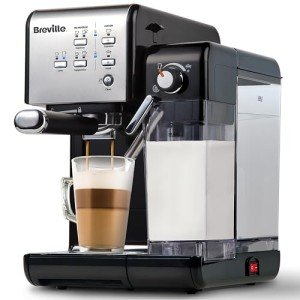A Proactive Rant About Home Use Espresso Machines

Home Use Espresso Machines: A Comprehensive Guide
Espresso machines have become a staple in many homes as coffee lovers seek to replicate café-quality brews in the convenience of their kitchen areas. The increase in popularity has actually resulted in a varied market filled with various designs, functions, and costs. This post aims to supply an informative overview of home use espresso machines, helping readers navigate their choices successfully.
Understanding Espresso Machines
Espresso machines work by requiring warm water through finely-ground coffee under high pressure, leading to a concentrated coffee beverage understood as espresso. There are numerous types of espresso machines classified based on their developing techniques and level of automation. The most typical types include:
- Manual Espresso Machines: These require the user to control the pressure and water circulation, enabling a more hands-on coffee-making experience.
- Semi-Automatic Espresso Machines: These offer automatic control over water pressure, while the user by hand grinds and tamps the coffee.
- Automatic Espresso Machines: With the push of a button, these machines automatically control the flow of water, making it simpler to brew espresso with constant outcomes.
- Super-Automatic Espresso Machines: These all-in-one machines manage grinding, tampering, brewing, and even milk frothing, making them perfect for users searching for benefit.
- Pill or Pod Machines: These use pre-packaged coffee pods to develop espresso with minimal effort, but they limit choice in brewing methods and tastes.
Table: Comparison of Espresso Machine Types
| Type | Control Level | Ease of Use | Cleaning up Level | Suitable For |
|---|---|---|---|---|
| Manual | User-controlled | Moderate | High | Coffee purists |
| Semi-Automatic | Partial automation | Moderate | Moderate | Home baristas |
| Automatic | Completely automated | Easy | Low | Hectic people |
| Super-Automatic | Completely automated | Very simple | Really low | Convenience hunters |
| Capsule/Pod | Fully automated | Extremely simple | Very low | Casual drinkers |
Secret Features to Consider
When choosing a home use espresso machine, it's essential to consider various functions that can substantially affect the quality of espresso and user experience.
- Pressure: Look for machines that supply a minimum of 9 bars of pressure, as this is considered optimal for developing espresso.
- Boiler Systems: Single vs. dual boiler systems identify temperature level stability and the capability to brew espresso and steam milk at the same time.
- Grinder: Integrated grinders permit newly ground coffee, which improves taste. Think about machines with adjustable grind settings.
- Milk Frother: For those who take pleasure in cappuccinos and lattes, an integrated steam wand or automatic frother is important.
- Size and Design: Consider your kitchen area space and aesthetic choices. Machines are available in various sizes, from compact to big setups.
- Rate: Home espresso machines can vary from a few hundred to numerous thousand dollars, so it's essential to develop a budget before exploring choices.
Benefits and drawbacks of Home Use Espresso Machines
| Pros | Cons |
|---|---|
| Benefit of brewing coffee at home | Initial financial investment can be high |
| Quality of espresso is typically superior | Requires some skill, specifically with manual machines |
| Ability to try out flavors | Maintenance and cleansing can be labor-intensive |
| Can save cash in the long run | Not all machines will match every coffee choice |
Upkeep and Cleaning Tips
Preserving an espresso machine is crucial for lengthening its life and making sure consistent brew quality. Here are some helpful pointers:
- Regular Descaling: Minerals from water can develop up in the machine. Descale every 1-3 months, depending on water hardness.
- Daily Cleaning: Rinse portafilters, baskets, and steam wands after each use to prevent coffee oils from constructing residue.
- Use Filtered Water: This can help in reducing mineral accumulation and improve the taste of coffee.
- Replace Gaskets and Seals: These elements may wear out over time and needs to be changed to keep pressure and performance.
- Check out the Manual: Each machine has specific care guidelines; following these will ensure longevity.
FAQs About Home Use Espresso Machines
Q1: What is the best budget espresso machine?The best budget espresso machine frequently depends on specific requirements, however models like the DeLonghi EC155 or the Breville Bambino are popular amongst users for offering great worth. Q2: How long do home espresso machines generally last?With appropriate maintenance, home espresso machines can last anywhere from 5 to 15 years, depending upon the quality of the machine and frequency of use. Q3: Can I make coffees and lattes with any espresso machine?While most espresso machines can make coffees and lattes, having a dependable
steam wand or frother is necessary for attaining the best milk texture.
Q4: Are super-automatic machines worth the investment?For Espresso Machine Clearance Sale who prioritize convenience and quick developing, super-automatic machines can be worth the investment, though they may lack some customizability in brew strength and taste. Q5: What kinds of coffee beans are best for espresso?While individual choice plays a role, beans identified as" espresso "blends are normally roasted darker, creating rich tastes and a creamy texture when brewed.
Investing in a home espresso machine can change the daily coffee routine into something unique, elevating home brews to café quality. By comprehending the various kinds of machines, key features to think about, maintenance requirements, and weighing the
pros and cons, consumers can make informed decisions that fit their specific choices. As the espresso culture continues to grow, no matter the choice, every brew can be a tasty experience waiting to be savored.

